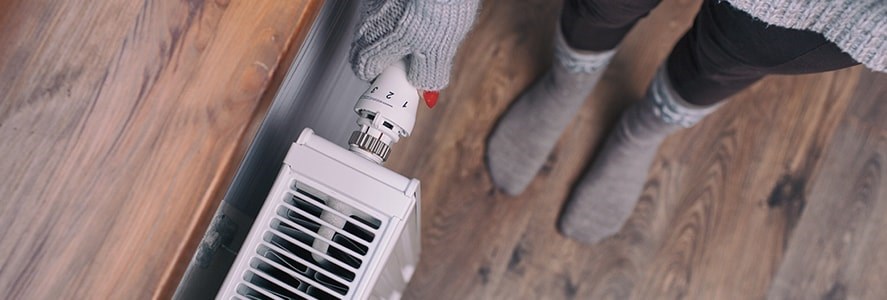Is your property ready for winter?

One of the most common problems in properties over winter are burst pipes. This not only causes a huge amount of damage but can also mean a large amount of inconvenience for the tenant too.
The main cause of burst pipes is due to the heating being off during cold temperatures - the water freezing and expanding, then as temperatures increase the pipes crack and burst. You or your agent should advise tenants that radiators should be left on at a low setting. If tenants are concerned about heating costs, most radiators have a frost setting which prevents the water freezing inside the pipes and is minimal cost for energy. The frost setting appears as a "snowflake" symbol on the heat control valve, just under the "I" setting.
It is also good practice to ensure the tenants know where to stop cock is, so that water can be turned off, immediately, preventing further damage. It is the tenants' responsibility to inform the landlord / agent about any leaks as soon as possible and it is the landlords' duty to carry out repairs promtly.
Severe weather can easily damage your property if it has not been reasonably maintained over the years. It is important to have the roof checked regularly for any loose, slipped or cracked slates or tiles before further damage, resulting in expensive repairs, is caused by high winds and stormy weather.
Having gutters free of leaves and debris is essential in reducing the risk of leaks and blockages. Clear guttering will prevent water from running down the external walls of the property and will keep the premises free of rot and damp.
Every day activities such as cooking, bathing, washing and even breathing release moisture into the air. Once this meets a cold surface condensation occurs. Untreated condensation turns into black mould which not only can damage your property, but can cause hazards to the occupiers' health.
Poor insulation, inadequate heating and lack of ventilation all contribute to condensation and mould.
Ventilating rooms, especially bathrooms and kitchens which should be fitted with good extractors, is very important.
It is good to remember that steam is also being produced when drying clothes inside. Therefore, the room should be properly aired out or dehumidifier could be used instead.
Beaware of void periods. Void periods are always bad news for landlords, but in the winer, this is truer than ever.
With all extra maintenance worry winter brings, having someone in the property means you'll know quickly if something has gone wrong. If you do have an empty property over the winter period, you or your agent should regurlarly check everything is in order.
Your tenant should inform you / your agent if they are vacant for more than 14 days in the winter.
Check your insurance cover and that your policy is up to date.